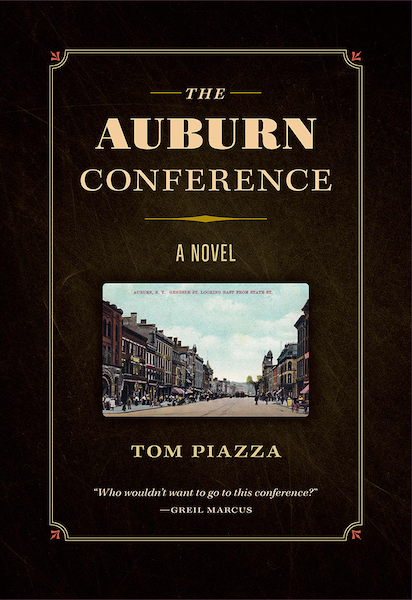The Energy Hiding in Our Hearts
Robert Gipe’s Appalachian trilogy concludes with Pop: An Illustrated Novel
In 2015, Robert Gipe introduced Dawn Jewell in Trampoline, an illustrated coming-of-age story about a Kentucky teenager who fights against strip mining in the 1990s. The setting is fictional Canard County, Kentucky — picture Faulkner’s Yoknapatawpha thrust upward onto an Appalachian peak — and the characters include Dawn’s extended mountain family. Weedeater, a 2018 sequel, takes place in 2004, a time when Dawn is the young married mother of a precocious 4-year-old and fighting an opioid epidemic destroying her community and family. In Gipe’s new Pop, which the publisher describes as the final installment of the trilogy, Dawn’s daughter Nicolette, now 17, becomes the novel’s primary narrator.

It’s 2016, and in advance of the looming presidential election Dawn has begun to fray a bit at the edges. She spends most of her time online, eating junk food and drinking soda — regionally known as “pop,” as in the book’s title. After fighting endless battles against the pollution, drugs, and poverty that plague Canard County, Dawn has become reluctant to engage with the world. Meanwhile, teenaged Nicolette spends much of her time away from home. Just as her mother did before her, she alternates between Dawn’s Uncle Hubert, a backwoods entrepreneur, and Aunt June, an English teacher in town. With a school friend named Pinky, Nicolette decides to manufacture pop infused with local flavors, just ahead of a Hollywood film crew coming to town to film a movie about hillbillies and alien monsters. The story shifts seamlessly between scenes narrated by Dawn, Hubert, and Nicolette, the narration occasionally passing through — rather than around — Gipe’s Thurberesque drawings.
Although his work combines elements of the graphic novel with Southern fiction reminiscent of Harper Lee and Charles Portis, Gipe’s background is in theater. In 2011, four years before his first novel, he was profiled in The New York Times for a series of plays based on the coal town of Harlan, Kentucky. The article praised Gipe’s realistic dialog “drawn from real stories collected by Southeast Kentucky Community students in a long-running oral history project.”
In Pop, as in Gipe’s previous novels, the dialog reads something like a theatrical script, with the name of the speaker generally preceding quotes and characters sometimes speaking back and forth across several pages. In one such exchange, Dawn complains to June about the ridiculous science fiction plot to be filmed in their hills.
I said, “Why their stories? Why can’t they tell our stories? Why can’t we tell our own stories?”
June said, “Maybe this is how we get to do that.”
I said, “What happened to the ’Nothing about us without us’ you used to teach us?”
She said, “I know but—“
I said, “What about all the people don’t have nothing to offer the movie people? They need work. And care. And civilized treatment. Not some trickle-down horseshit like this.”
June said, “Dawn.”
 The strong narrators and conversational tone pull the reader along, setting up powerful moments when the text abruptly switches to art. In one of these, Nicolette is staying with June. After a recording played in June’s class — a tale recited by a “giant” dead poet whom Nicolette may or may not have met as a ghost — Nicolette writes a response, which her aunt reads. After asking why Nicolette seems sad, June says astutely, “Reading your paper makes me wonder if you’re having trouble with something male.”
The strong narrators and conversational tone pull the reader along, setting up powerful moments when the text abruptly switches to art. In one of these, Nicolette is staying with June. After a recording played in June’s class — a tale recited by a “giant” dead poet whom Nicolette may or may not have met as a ghost — Nicolette writes a response, which her aunt reads. After asking why Nicolette seems sad, June says astutely, “Reading your paper makes me wonder if you’re having trouble with something male.”
The conversation moves into one of Gipe’s drawings. Nicolette’s wry face stares at the reader, framed on either side by the awkwardly scrawled capital letters of her reply: “I was speaking to the general bullshittery caused by males.”
In these moments the feeling becomes neither graphic novel nor theatre, but documentary, as if the rough drawing is some filmed clip of oral history. The voices ring pure and true as those that James Agee chronicled in his nonfiction masterpiece, Let Us Now Praise Famous Men. Pop’s unfolding events move toward elements that in a more traditional novel might verge into Southern gothic, yet Gipe’s style keeps the action and characters utterly real — at times painfully so.
In a 2019 op-ed for The New York Times, Gipe wrote that in Appalachia “the 2016 election has strained the bonds we’ve forged — and has led to deep reflection and conversation within the region.” He concluded his essay by asking of his home, “Who will release the energy hiding in our hearts?”
In Pop, as throughout the entire Canard County trilogy, Gipe writes his powerful answer.

Michael Ray Taylor is the author of Hidden Nature: Wild Southern Caves. He chairs the communication and theatre arts department at Henderson State University in Arkadelphia, Arkansas.


